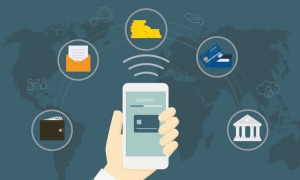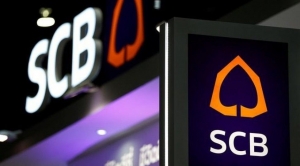Asia Banking Research
Philippine digital banks could be real disruptors
In Asia Pacific, digital banking is a tale of two different types of markets. In advanced economies like Hong Kong, Singapore, digital banks often lack a clear value proposition and have limited disruptive capabilities. In developing countries, it is a very different story, and perhaps none more so than the Philippines. The Philippines’ geography, large unbanked population and fast-growing mobile internet connectivity make the country uniquely suited to branchless neobanks.
Siam Commercial Bank has high hopes for fintech
Siam Commercial Bank (SCB) is the latest incumbent lender in Asia to wager that digitization is the key to its future. Thailand’s oldest commercial bank and established by royal charter in 1907, SCB is transforming into a financial technology group and moving into the digital assets business. The transformation, which involves the establishment of a “mothership company” called SCBx, will propel the bank “as a regional financial technology conglomerate by 2025,” SCB says on its official website.
Growing pains for Indonesia’s P2P lenders
Indonesia’s peer-to-peer (P2P) lending sector has grown expeditiously in recent years, with significant benefits for financial inclusion in Southeast Asia’s largest economy. Put simply, P2P lenders can serve markets that incumbent lenders cannot. However, risk is also higher in every way because P2P lending lacks a robust regulatory regime. The challenge for Indonesia’s Financial Services Authority (OJK) is striking the right balance between encouraging healthy industry development and preventing malfeasance and excessive borrower delinquency.
Taiwan wants to keep e-commerce and banking separate
Throughout Asia, e-commerce platforms are adding fintech functions as they look to build more comprehensive digital services platforms. Unfortunately for e-commerce platforms in Taiwan, regulations make it very difficult for them to offer banking services. This is by design: Taiwan’s financial regulators want to prevent internet companies from fomenting too much disruption in the financial services sector.
Singapore’s largest banks post solid Q3 earnings
Singapore's largest banks have performed strongly throughout the year, and the third quarter was no exception. In the July to September period, the city-state’s three largest lenders (DBS, OCBC and UOB) once again beat analysts’ forecasts.
Indonesia embraces digital banking
As Southeast Asia’s largest economy, Indonesia is among the most important market in the region for the financial services sector. With that in mind, Indonesia’s steady adoption of digital banking represents a huge market opportunity for both fintechs and incumbent banks engaged in digital transformation.
Toss Bank off to a fast start, with a few caveats
In early October, Toss Bank finally went live in South Korea. The process took several years and hit a few bumps in the road. The country’s third digital lender had to reapply for a digital bank license after its initial application was rejected in May 2019. Regulators gave Toss preliminary approval in December 2019, but nearly two more years were required before it could launch. As it turns out, Toss is entering the market amid the first real fintech crackdown in South Korea, which has important implications for its growth trajectory.
While a certain amount of hype surrounds digital banks, one thing about them is for sure: Their very presence intensifies competition in the market, drawing attention to incumbent complacency. Now that Malaysia’s central bank plans to issue five digital banking licenses in the first quarter of 2022, the country’s traditional banks are moving to head off the challenge – or at least prepare themselves well.
Singapore sees sharp rise in online financial crime
The digitization of life since the coronavirus pandemic began has made life more convenient in many respects. However, there is a downside to all of the digital activity: Criminals are now more active online than ever, and Singapore is no exception. The city-state known for its low crime rate – extremely low when compared with other developed countries – is a grappling with a surge in online crime, with loan and investment scams especially problematic.
South Korean digibanks may shrug off fintech crackdown
South Korea’s fintech crackdown has delayed Kakao Pay’s IPO and likely will force the company to do some restructuring to meet regulatory requirements. Kakao Pay’s parent company has also felt regulatory ire. Yet Kakao Bank, the digital bank unit of the platform company, has continued to perform well, as have its competitors K bank and Toss.
More...
New regulations could be boon for digital banking in Indonesia
Given that Indonesia is Southeast Asia’s largest economy, the decisions it makes about digital banking will have a large effect on fintech development in the region. To date, Jakarta has moved cautiously, despite the pandemic-driven transition to online banking that has swept the region. There are signs, however, that Indonesian regulators are keen to get the ball rolling. They will take a somewhat different approach than their counterparts in Singapore, the Philippines and Malaysia though.
PayMaya wins Philippines digital bank license
Just a few months into its digital bank fast-tracking experiment, the Philippines decided to slow things down by limiting the number of digital bank licenses to seven for the next three years, effective September 1. Interest in the digibanking licenses has been strong among both digital upstarts and incumbent lenders, perhaps even stronger than the Philippine central bank (BSP) had expected. The newest winner – and perhaps the last for some time – in the country’s digibanking race is Voyager Innovations’ PayMaya, one of the Philippines’ leading e-wallets.
Revolut eyes Australia banking license
Never short of ambition, Revolut is aiming for an Australia banking license roughly a year after formally launching its app Down Under. The UK neobank unicorn is in discussions with the Australia Prudential Regulation Authority (APRA) as it seeks approval to take customer deposits and provide lending services.
Digital banks are fast becoming a fixture of the Asia-Pacific fintech boom, in many ways a manifestation of Big Tech’s desire to become Big Fintech. In contrast to the United States and Europe, where ascendant digital lenders are usually pure-play operations that began as humble startups, APAC has an increasing number of so-called digibank startups backed by the region’s largest tech companies and some major incumbent financial services firms.














